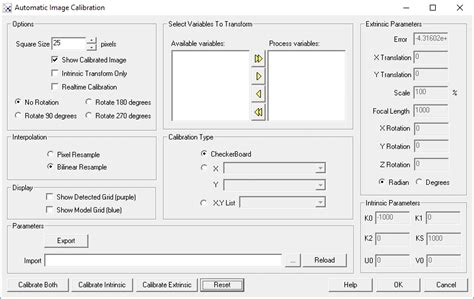Car Calibration Time: What Determines How Long it Takes?
Car calibration, whether for engine control units (ECUs), tire pressure monitoring systems (TPMS), or other critical components, is essential for optimal vehicle performance, safety, and fuel efficiency. However, the time it takes to complete a calibration can vary significantly. This article explores the key factors influencing calibration time, answering common questions car owners often have.
What is Car Calibration?
Before diving into the duration, let's clarify what car calibration entails. It's a process of adjusting and fine-tuning various vehicle systems to ensure they operate within their specified parameters. This might involve adjusting fuel injection, ignition timing, transmission shifting points, or sensor readings. Calibration ensures that all parts work harmoniously, maximizing performance and minimizing issues.
What Determines How Long Car Calibration Takes?
Several factors significantly influence the time required for car calibration:
1. Type of Calibration:
-
ECU Calibration (Engine Control Unit): This is often the most time-consuming calibration, potentially taking several hours or even a full day, depending on the complexity of the vehicle's engine and the software used. It usually involves connecting a specialized diagnostic tool to the vehicle's OBD-II port and uploading new software or adjusting existing parameters.
-
TPMS Calibration (Tire Pressure Monitoring System): This is typically much quicker, often taking only a few minutes to an hour. It involves resetting the system after tire changes or repairs to accurately reflect the current tire pressure.
-
Other calibrations (sensors, etc.): Calibrating individual sensors or other components can vary widely in time depending on the specific component and the method required. Some are quick, while others may require specialized tools and techniques.
2. Vehicle Make and Model:
Different car manufacturers have varying levels of complexity in their systems. Some vehicles have simpler ECUs and calibrations that are relatively quick, while others have more sophisticated systems requiring more extensive calibration processes. Older vehicles may also require more time due to older technology and less user-friendly diagnostic tools.
3. Specialized Tools and Software:
Access to the correct diagnostic tools and software plays a crucial role. Professional mechanics usually have the necessary equipment, leading to quicker calibration times compared to DIY attempts using less sophisticated tools, which might be slower and less precise.
4. Technician Skill and Experience:
A skilled and experienced technician can often complete calibrations faster and more efficiently than someone less experienced. This is particularly true for more complex ECU calibrations.
5. The Scope of the Calibration:
The number of systems requiring calibration directly impacts the total time. If multiple systems need adjustment, the overall calibration time will naturally increase. For example, if a major repair was conducted, numerous components may require recalibration.
How Long Does ECU Calibration Usually Take?
ECU calibration is often the longest calibration process. While there's no single definitive answer, expect to allocate at least a few hours, potentially stretching to an entire workday, especially for more complex vehicles. The technician needs to connect to the vehicle's system, upload or adjust the necessary parameters, and then test the engine's performance to ensure everything is functioning correctly.
How Long Does TPMS Calibration Usually Take?
TPMS calibration is considerably faster. In many cases, this can be accomplished in under an hour, often within 15-30 minutes, after proper tire inflation. The process usually involves driving the car for a short distance to allow the system to relearn the correct tire pressures.
Can I Calibrate My Car Myself?
While some simple calibrations might be possible with DIY methods, attempting complex ECU calibrations without proper training and equipment is strongly discouraged. Incorrect calibration can severely damage your vehicle's engine and other components. It's generally best to leave this task to qualified professionals.
Conclusion
The duration of car calibration varies widely based on the type of calibration, vehicle make and model, technician expertise, and the tools used. While some calibrations are quick, others—particularly ECU calibrations—can take several hours or even a full day. For optimal results and to avoid potential damage, always choose qualified professionals for any complex calibration procedures.

